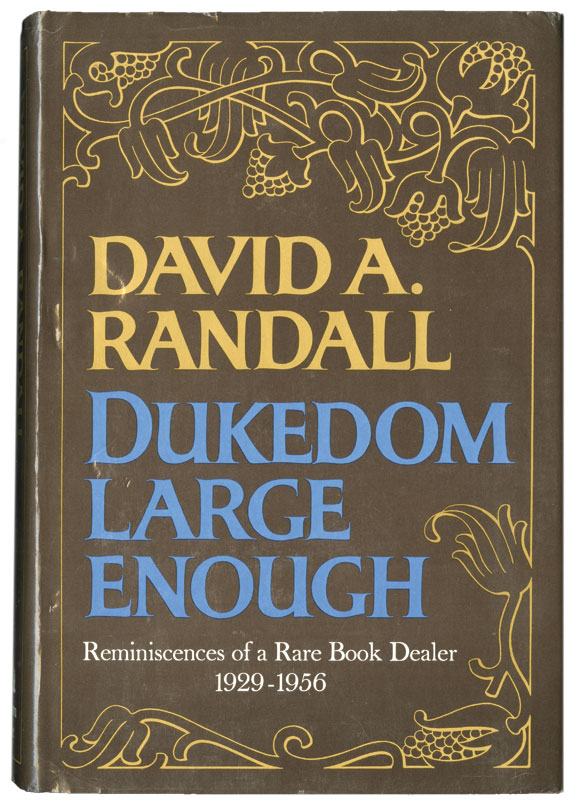Collector and Bookseller: A Vanishing Relationship?
Personal interaction and friendly discourse are the main ingredients in a robust antiquarian book market By Joel Silver Joel Silver is Director and Curator of Books at the Lilly Library, Indiana University, Bloomington, Indiana.
“What you have with a restaurant that you visit once or twice is a transaction. What you have with a restaurant that you visit over and over is a relationship.” Frank Bruni, “Familiarity Breeds Content,” New York Times, October 18, 2013
It’s a cliché, but it’s true: Things aren’t the same as they used to be. Over the last twenty-five years, we’ve transformed the way that we buy books and build our collections, and most of the familiar bookshops, old and new, have disappeared. There aren’t nearly as many local places to browse and buy books as there once were, but there are more books available to buy than ever, and great collections are still being formed. But collectors and booksellers have lost something along the way, and it’s important to recognize that just as Frank Bruni’s favorite restaurants offer something that he can’t get anywhere else, this is what the book market, at its best, used to do, and still sometimes does.
In Bruni’s world of local dining, proprietors and waitstaff know him, and he’s treated more like a member of the family than a customer. Money changes hands, and the meal is still a business transaction, but there are sincere greetings and extras along the way, and satisfying feelings on both sides. As diners know, not all restaurateurs or servers are friendly, but if diners don’t enjoy the gruff interchanges, they won’t return very often. But when they find the restaurants that are comfortable and nourishing, they become regulars, and everyone benefits.
Collecting books isn’t the same as going out to eat, but just as restaurants can be destinations of pleasure and possibility, social activity, expanding horizons, and fulfillment, so can bookshops, and no matter how many books we can now buy elsewhere, there’s something important that’s missing in most of these purchases—a personal relationship. The Internet, though it’s greatly expanded our possibilities, has made most of our book purchases routine and impersonal transactions, which are often handled by an automated third party. For better or worse, our contacts with booksellers are now usually limited to shipment notices, and though this makes for efficient buying and selling, it now takes special effort from both parties to build a relationship.
These changes aren’t all bad. Most longtime collectors and booksellers have found that there are some people on both sides who are much more pleasant to deal with in the virtual world than they are in person or on the telephone. But bookshops have also long filled an important educational function for collectors, and even if a bookseller has conducted business by catalogue only, the bookseller, through guidance and descriptions, has still served as a teacher to collectors of all levels. As John Carter expressed it in Taste and Technique in Book-Collecting (Cambridge: Cambridge University Press; and New York: Bowker, 1948): “The school of experience holds its classes in bookshops and in the auction room. And if the auctioneer is the examiner, a good bookseller can be an invaluable tutor. It is true that in his shop, as well as at a sale, the collector pits his judgment of price not only against that of his fellow-collectors but also against the dealer’s. In all other respects, his interests and his bookseller’s are one.”








